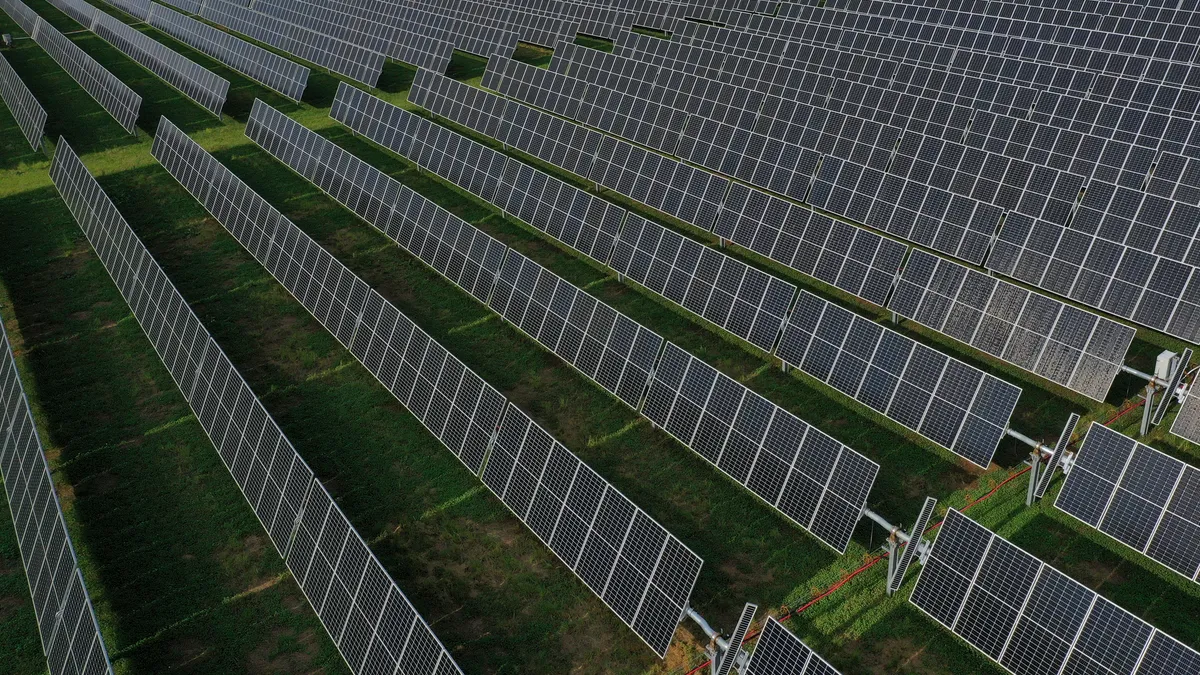Dive Brief:
- The U.S. Department of Commerce announced Tuesday that it has made a preliminary affirmative determination in a countervailing duty investigation into solar cell imports from four Southeast Asian countries, and set preliminary duties on those imports.
- The countries – Cambodia, Malaysia, Thailand and Vietnam – are also under investigation for illegal dumping, and face a preliminary anti-dumping determination in late November.
- “Today’s announcement is an important early step in a year-long process to determine the amount of illegal government subsidies benefiting these companies,” said Tim Brightbill, partner at Wiley Rein and lead counsel to the American Alliance for Solar Manufacturing Trade Committee, the group of solar companies that petitioned Commerce to investigate.
Dive Insight:
“This preliminary determination shows that we are still very early in these investigations, and we expect the final determination to reflect the true harm these imports bring to U.S. manufacturing,” Brightbill said in a Tuesday release. “We are confident that the duty rates will increase as Commerce continues to investigate newly alleged subsidies. It is our understanding that producers in all four countries are still responding to detailed questionnaires required in these cases which will impact the final findings.”
Commerce also made affirmative critical circumstances findings on Vietnam and Thailand producers with above de minimis countervailing duty, or CVD, margins. For these companies, the CVD will apply within a retroactive 90-day period.
The preliminary subsidy rates released by Commerce go as high as 292.61% for four companies based in Vietnam. Hanwha Q Cells, a member of the American Alliance for Solar Manufacturing Trade Committee, was assigned a 14.72% subsidy rate for its exports out of Malaysia.
The alliance – which also includes First Solar, Convalt Energy, Meyer Burger, Mission Solar, REC Silicon and Swift Solar – filed petitions with Commerce and the U.S. International Trade Commission in April seeking antidumping and countervailing duties be imposed on crystalline silicon solar cell imports from the four countries.
Commerce made a positive determination last year that the four Southeast Asian countries had been used by solar panel manufacturers to circumvent tariffs on Chinese-made components, and confirmed that import duties would be imposed on panels from those countries beginning in June.
The alliance’s petition has been criticized by renewable energy groups like the American Council on Renewable Energy, which in July released an analysis finding that new tariffs “could seriously hinder America’s progress on solar deployment.”
In a third quarter insights report released Wednesday, solar and energy storage supply chain platform Anza said that while the petition has driven up module prices for Southeast Asian manufacturers, “not all suppliers have been equally impacted. Some manufacturers, outside the scope of the current investigation, have quickly adapted their supply chains and maintained competitive, fixed pricing, even compared to pre-AD/CVD levels.”
“These differences in pricing dynamics, coupled with the removal of the Section 201 exemption, have created a more complex market landscape where rising costs are more pronounced for specific suppliers,” Anza said. “In contrast, others continue to offer stable pricing options. Overall, we saw an increase in pricing by about 15% for Southeast Asian module supply from its lows in April to August 2024.”
Commerce’s preliminary determination for the antidumping investigation is set to be released Nov. 27, and both the AD and CVD investigations are set to receive final determinations in April.














